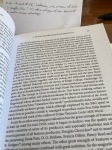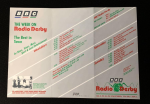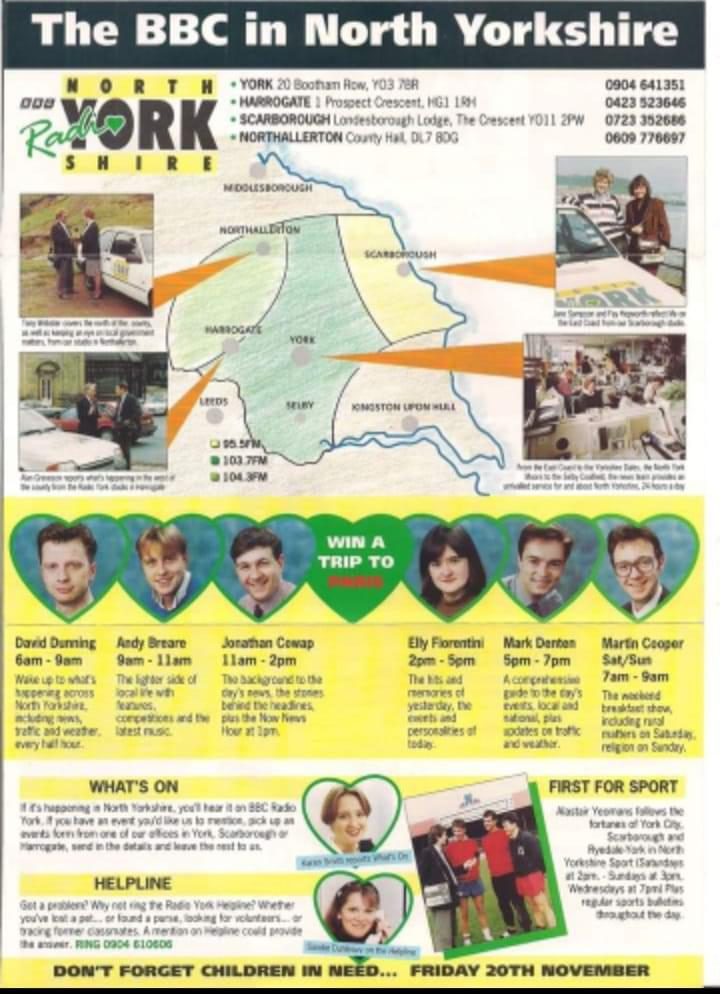And radio producers have been prone to the vice of alcohol too.
I speak from experience. During my bachelor days of the early 1980s I recall spending a lot of evenings with colleagues in a bar.
One of my first shifts was at a radio newsroom in an English provincial city during the Falklands/Malvinas conflict. The joke at our pub table of beery hacks was whether the corned beef in the sandwiches was of Latin American origin or not. These days I can’t even imagine why I’d have a such a meat-based sandwich with a desultory “salad” of limp lettuce, stale shredded carrot and a bit of onion on the side. No matter.
Into the mid-90s, and the places where I worked gradually weaned themselves off long liquid-based pub lunches. Instead, the trend was towards a room, a seating area, at work where you could take time to eat your own sandwiches and make coffee or tea. Even microwaves and dishwasher machines started to appear. Mind you, the sink was always full of stinky unwashed cups and plates – no one ever worked out who got the awful job of tidying up, especially when the cleaning staff were axed in a round of “economies”. Oddly, it was called “salami slicing”.
But alcohol and the habit it created persisted. I recall one commercial station where a journalist colleague kept going to the boot of his car in the car park. “What’s he doing?” I asked. “He’s having a quick snifter from the bottle of scotch he’s got in there!” was the reply.

Later, like so many of my generation, I moved on to drinking at home: I used to buy boxes of 48 own-brand lager stubbies from the supermarket. Regrettably they’d not last more than a few days.

Why does anyone drink? Why do humans put toxic substances in their bodies? For me, across a couple of decades it was booze and fags. Was I struggling with my male self-identity? Was I hiding a bigger hurt? I can offer no personal explanation – or indeed excuse.
Thankfully things have changed since then. I’ve not touched alcohol for more than two decades, since 2003. Smoking stopped around the same time. I put my temperance – and subsequent improved health – down to my eventual reconnecting with my Christian faith, which persuaded me to give up fags and booze.
I still drink expresso coffee.
I also use lactose-based products – though not at the same time – and definitely no beer these days. “They got me on milk and alcohol.” That’s a vague Dr Feelgood[**] reference by the way.
Or as Noel Gallagher once remarked, “I was looking for some action / But all I found was cigarettes and alcohol.” Quite so.
Back to radio – and to journalism. I was upset to read a recent account of the drinking life at the BBC during the post-war years.
And it’s worth remembering that two decades after the Beeb came into existence, radio drama in the 1940s onwards was still an evolving concept. That’s why the Corporation made such significant contributions to the artistic and cultural life of Britain. It also attracted types who, I suppose, always had a predisposition towards addiction.

Hugh Chignell in 2019 published British Radio Drama, 1945-63. It’s a fascinating historical record of some of these creative achievements.
https://staffprofiles.bournemouth.ac.uk/display/hchignell
On p. 25 Prof. Chignell mentions the behaviour of one of the postwar radio producers Rayner Heppenstall. It doesn’t make for good reading.

“Features and Drama producers gravitated to the pubs close to Broadcasting House: The Stag’s Head, The Horse and Groom and, above all, The George in Great Portland Street. This heavy drinking culture is described with a rather self-deluded frankness by the features producer Rayner Heppenstall”.
I’ll mention Rayner’s book in a moment. Hugh Chignell quite rightly wonders how such a sozzled bunch of highly educated (predominantly) male creatives could have produced award winning dramas that culminated in the likes of Dylan Thomas’s Under Milk Wood. Again, a poet plagued with his own addiction problems and self-destructive tendencies.
Heppenstall grew up in Huddersfield in West Yorkshire where I taught journalism and radio for a number of years. His father was a manager in Co-Op retail; my grandad was a clerk in the wholesale boot and shoe division in Leicester. Rayner spent his childhood listening to the wireless and developed an abiding love for radio; so did I. Both of us struggled for a time with alcohol.

After graduating from the University of Leeds in 1932 he got what occasional work he could as a writer. He earned just enough to raise a young family in London, completed his war service and eventually joined the BBC full time.
His autobiography of his Beeb years, Portrait of the Artist as a Professional Man (1969) has a full chapter titled “The Stag’s Head” entirely devoted to his account of the daily cycle of work, drink, work, and alcoholism. It’s very sad reading.
He mentions sharing a flat with a young George Orwell and getting into a drunken fight with him. He also name-checks Lawrence Durrell, W.H. Auden, Dylan Thomas, C.P. Snow, Rose Macaulay, Laurie Lee, Muriel Spark, Robert Graves and Louis MacNeice. All of whom he recalls chatting to in The Stag’s Head as they knocked back a drink or two.
As a staff producer at Broadcasting House he created, commissioned, and oversaw material for the Third Programme which later became Radio 3. In the early 60s he moved out of the Features Department when it was closed, but found his subsequent switch to Drama didn’t work out. Heppenstall’s account in his book puts that down more to personality clashes than ability.
There had always been a huge overlap from the 30s onwards between Drama and Features at the Beeb with both appearing at times to do, and to be, the same thing on air. Indeed, academics still delight in trying to explain how two actors in the 1950s recreating scenes from Shakespeare or Proust was a Feature and not Drama. No, I don’t know either.
But back to substance abuse. The problem is, I think, that Heppenstall’s life and work environment was not that unusual. A generation later, in 2007, this came from the former Fleet Street editor, academic and media commentator Roy Greenslade…
https://www.theguardian.com/media/greenslade/2007/apr/02/wasjournalismbetterwhenwe
And this from a former editor of The Independent, Simon Kelner, in 2022:
Meanwhile, two new entrants to the profession posted this in 2020: Click here for more:


So, just to put some context on all of that rather gloomy stuff here’s some memories of what we managed to put out on air even if our breath smelt a bit stale…
Or you could read this article about Derby by Andy Walmsley…
http://andywalmsley.blogspot.com/2021/04/down-your-local-50-years-of-bbc-radio.html
Meanwhile, here am I in York, doing weekend breakfasts in the early 1990s… Groovy glasses. “…Rural matters on Saturday, religion on Sunday.”

Footnotes:
Transparency note: Hugh Chignell and I are both published by Bloomsbury Academic.
And finally, here’s the Dr Feelgood song I mentioned. I once went with a friend on a pilgrimage to Canvey Island in the band’s honour. More of that another time.
Photo credits: Stubbie, “Flaska” is licensed under CC BY 4.0.
“Vintage-Cigarette-Packet-Label-Silk-Cut-Green” by maxsheynihovich is marked with Public Domain Mark 1.0.